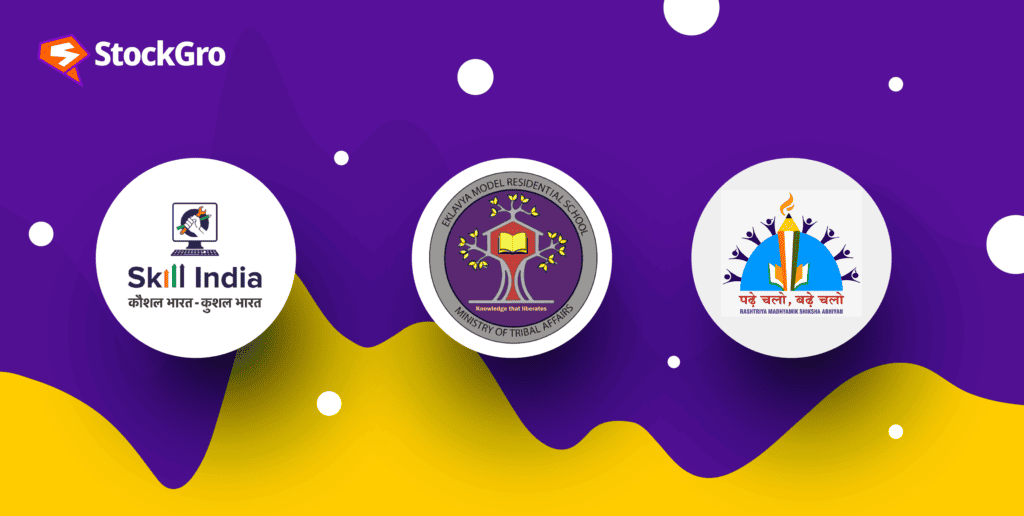
Financial literacy involves the knowledge and skills to manage one’s finances effectively. It includes informed decision-making about saving, spending, investing, and utilising financial services. In today’s world, where digital transactions are common, being financially literate means you’re equipped to handle online banking and digital payments safely and wisely.
Recognising the importance of financial education, the Indian government and various non-government institutions have been actively promoting financial literacy for years. These efforts aim to empower individuals with the financial knowledge they need in today’s fast-paced financial environment.
In this context, financial literacy camps have emerged as a valuable resource. These camps offer a focused environment to learn about various financial topics tailored to those who might not have extensive financial backgrounds. In this blog, we will explore what these camps offer, who they’re for, and why they’re becoming increasingly important.
What are financial literacy camps?
Financial literacy camps are focused initiatives aimed at improving your understanding of financial matters. They are designed to help you become more financially aware and skilled. These camps offer practical knowledge about saving, planning, and using financial products effectively. The main goal is to help individuals manage their finances better, avoid debt traps, and make the most of banking services.
The camps provide practical learning experiences in addition to theoretical knowledge. An important part of these camps is creating awareness about the benefits of banking and borrowing from banks. They often include guidance on money management, the importance of savings, and how to use bank services. The approach is straightforward and accessible, making it easy for everyone to grasp, regardless of their prior financial knowledge.
Lastly, these camps aim to bring unbanked individuals into the banking system. They include activities like opening bank accounts and monitoring their usage. By involving local government officials and NGOs, these camps reach a wider audience, ensuring more people get the financial education they need.
You may also like: What is personal finance, and why is it important?
Features
- Broad coverage of financial topics: Campss cover a wide range of topics. This includes RBI guidelines, various banking services and products, and the latest government-sponsored schemes. The aim is to provide a thorough understanding of the financial landscape.
- Diverse locations for camps: These camps are organised at various locations to ensure wide accessibility. This approach helps in spreading financial awareness to a broader audience, reaching people in different communities.
- Information on specific financial sectors: Camps offer detailed information on sectors like personal banking, agriculture, MSMEs, and business finance. This targeted information is useful for individuals and entrepreneurs in these specific areas.
- Details on government schemes: They provide crucial details about government-sponsored schemes like the Jan Dhan Yojana and various social security schemes. Understanding these can help individuals and families access benefits and support.
- Insurance product information: Camps educate participants about different insurance products, including life and general insurance. This knowledge is key to choosing the right insurance for personal and family security.
- Digital financial tools: They also cover digital financial tools like ATM operations and net banking facilities. In today’s digital world, understanding these tools is essential for safe and efficient financial transactions.
Also read: Insurance 101: How to protect yourself and your assets!
Types of camps
According to RBI guidelines, financial literacy camps come in different formats to cater to various needs and groups. Here are the main types:
- Special camps for new financial system members: These are designed for people who are newly inducted into the financial system. Imagine you’ve just opened your first bank account or started using a banking service; these camps are for you. They’re held once a month for a year, offering a continuous learning journey.
- Target group-specific camps: These camps are tailored to specific groups in society. Each camp focuses on the unique financial needs and challenges of its target group. The main groups include:
- Farmers: Addressing the financial aspects of agriculture and related activities.
- MSME entrepreneurs: Focusing on the financial needs of business owners and startups.
- School children: Introducing basic financial concepts to young learners.
- Senior citizens: Tailoring financial advice for those in their retirement years.
- Self-help groups (SHGs): Catering to the needs of community-based savings and loan groups.
Each type of camp is structured to provide relevant, practical financial knowledge, making complex concepts accessible and understandable.
Benefits of financial literacy camps
Financial literacy camps offer a range of benefits, making them an essential tool for anyone looking to improve their financial understanding. Here are some of the key advantages:
- Developing savings habits: One of the primary benefits of these camps is that they encourage the habit of saving. Participants learn the importance of setting aside money regularly, which is crucial for long-term financial stability.
- Effective use of financial services: These camps provide insights into various financial services and how to use them effectively. This knowledge helps individuals navigate the wide array of financial products available and choose the ones that suit their needs.
- Planning for life’s needs: Financial literacy camps teach how to plan financially for different stages of life. This includes preparing for unexpected emergencies without having to rely on debt.
- Achieving financial goals: By understanding the basics of financial planning, individuals can set and achieve their financial goals more effectively, whether it’s buying a home, investing in education, or planning for retirement.
- Bringing financial peace: In today’s digital age, managing money has new challenges. These camps help especially young people to understand modern financial environments and reduce stress related to money matters.
- Building trust: Such initiatives also build trust between financial institutions and their clients. By educating people, banks and NBFCs (Non-Banking Financial Companies) show their commitment to the welfare of their customers.
- Reducing debt and credit spending: Improved financial literacy leads to better spending decisions, less reliance on credit, and a decrease in unnecessary fees. This eventually results in higher levels of wealth and financial security.
Also Read: What are financial securities? Examples, types, and importance
Who can conduct financial literacy camps?
Financial literacy camps can be conducted by a variety of organisations, including governmental and non-governmental organisations, each bringing their own expertise and resources to the table. Here’s who can get involved:
- Bank branches: Banks play a key role in conducting these camps. They have a vested interest in promoting financial literacy, as it not only helps their customers make better financial decisions but also opens up new business opportunities for the banks. By educating people, banks can tap into untapped markets, especially at the grassroots level. For example, Telangana Grameena Bank.
- Financial Literacy Centres (FLCs): These centres are specifically set up for the purpose of educating the public about financial matters. They can be standalone entities or part of banking institutions. FLCs focus on a range of topics, from basic financial management to digital literacy. For example, the AU Foundation.
Bottomline
Financial literacy camps, led by banks and financial literacy centres with support from the government and NGOs, play a pivotal role in enhancing financial understanding in society. These camps, tailored for various groups, cover savings, investments, and digital finance. The benefits of financial literacy camps are immense, they lead to better financial decisions and habits, empowering individuals towards financial stability and independence.

